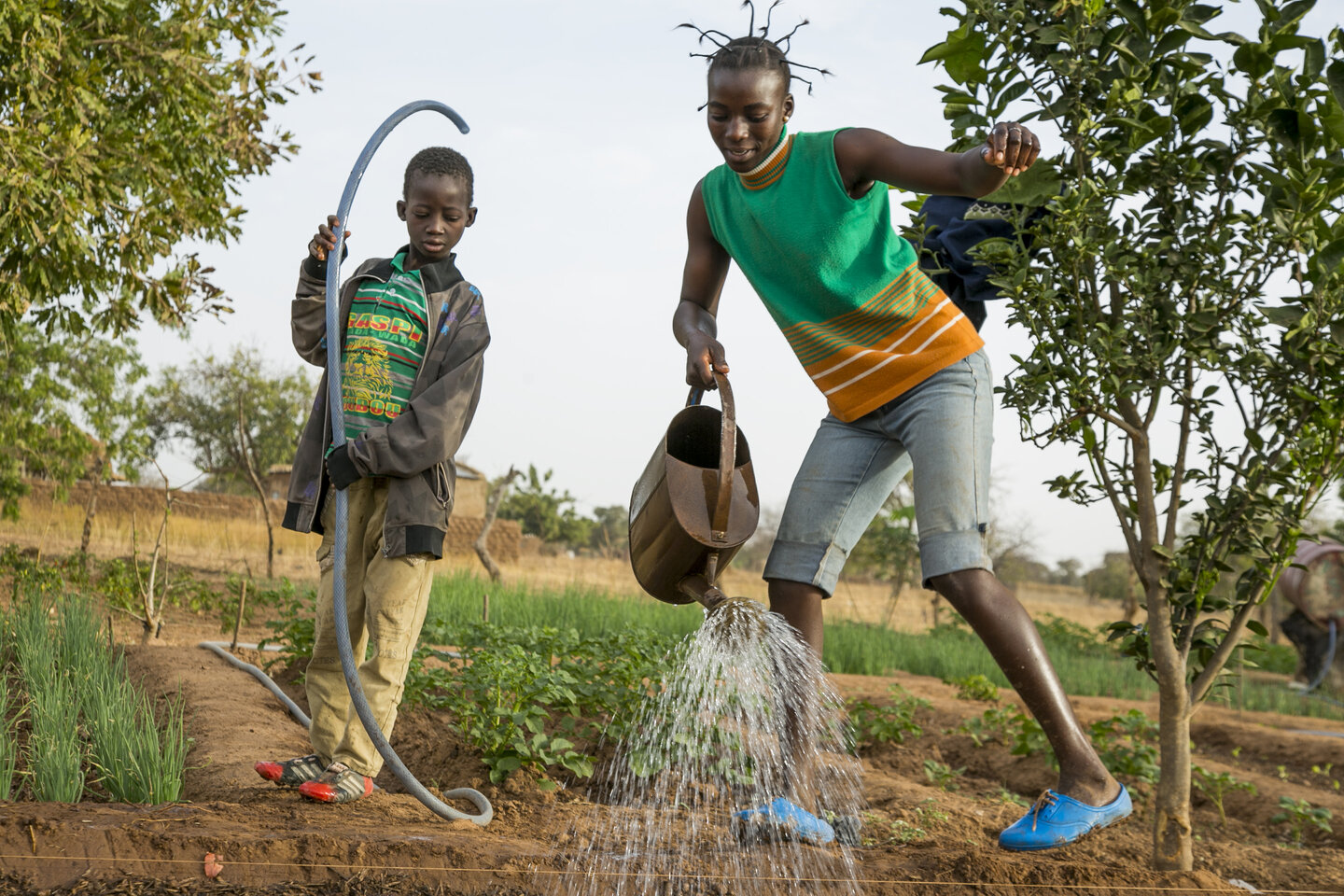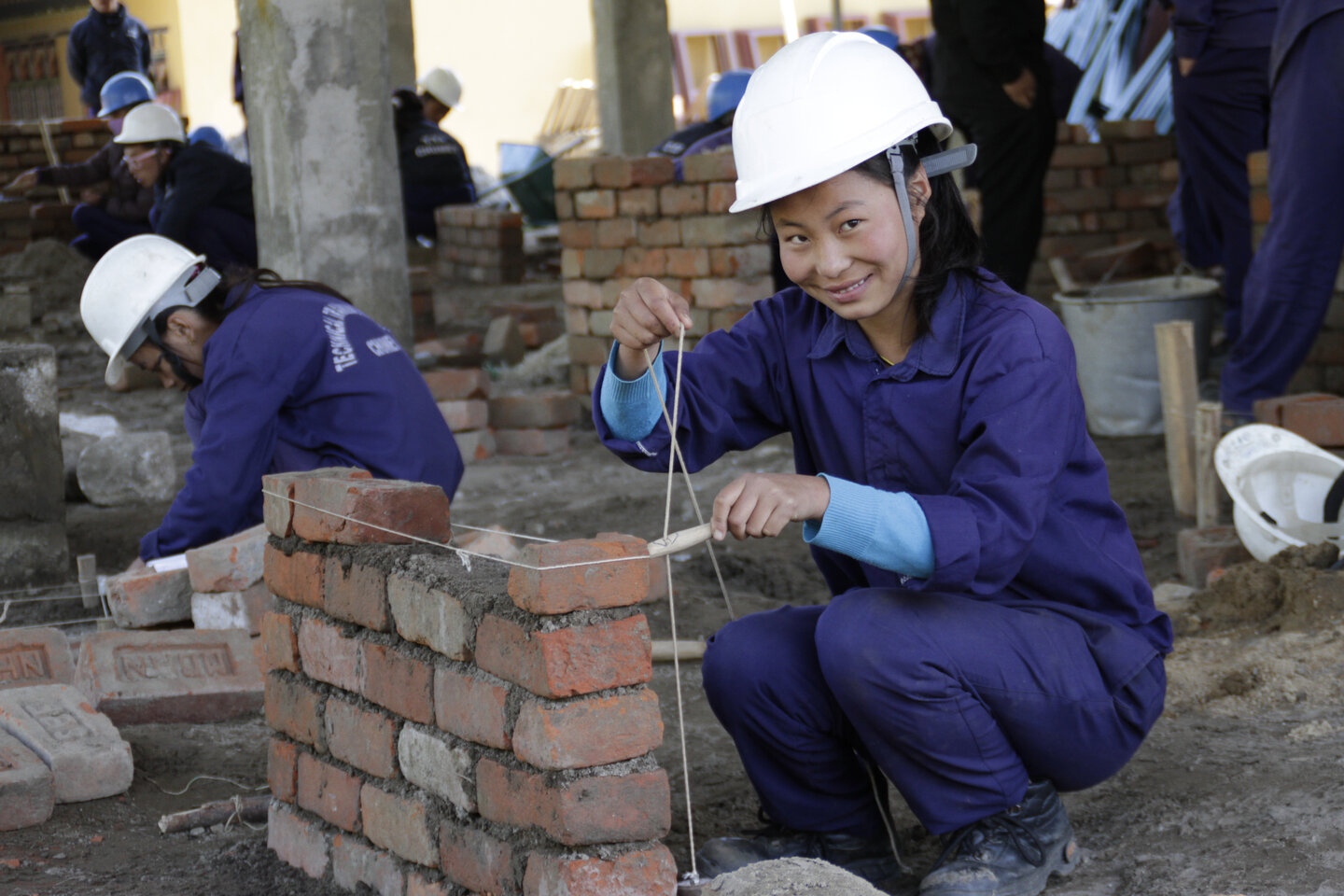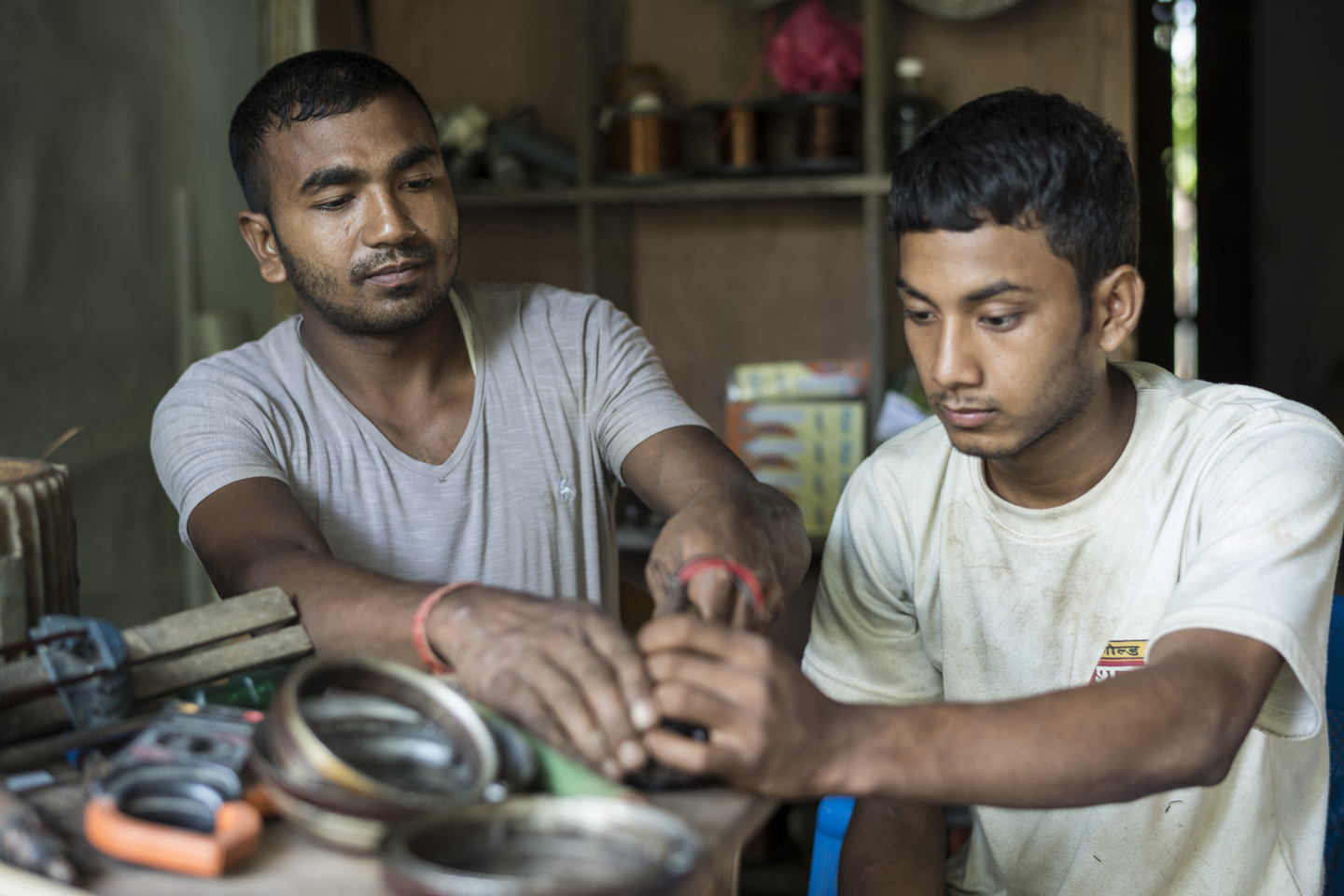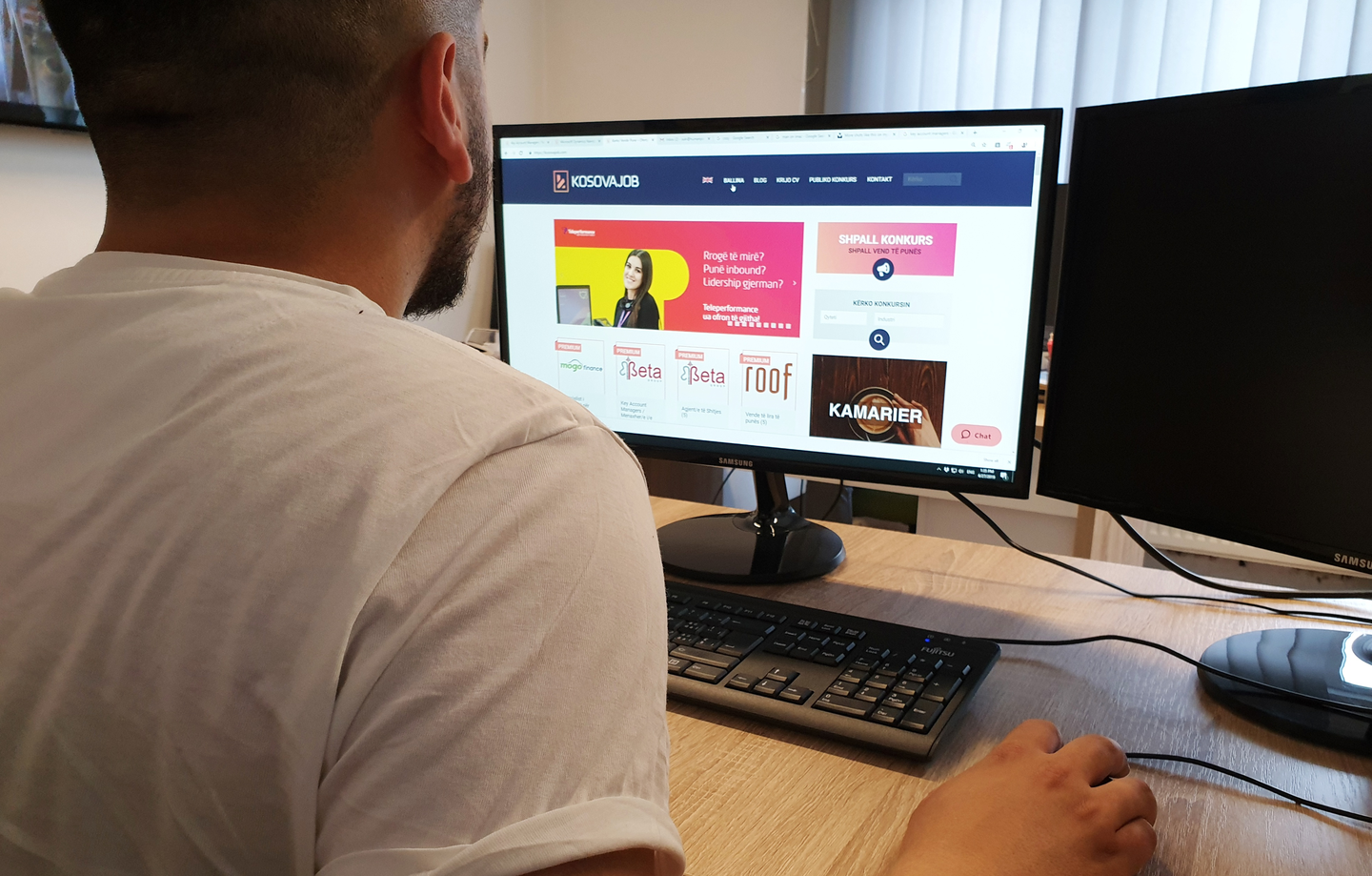Youth can and ought to drive change, master professions, start businesses and innovate. Yet, two in five economically active young people are either unemployed or don’t earn enough to escape poverty (ILO). How can we support youth in unlocking their potential?
By teaming up with young leaders and local partners – the private sector, governments, civil society and communities – Helvetas strives to achieve long-term and large-scale change that goes far beyond the scope of our work.
Youth as agents of change
We believe that only if young people are the agents of change, not mere beneficiaries of employment programs, we are able to meet the Sustainable Development Goals (SDGs). We are here to accompany them on their journey and support their aspirations. Our opportunity group approach for instance encourages young people to come together in peer groups to share, learn and apply newly acquired technical, entrepreneurial and life skills.
3 examples of how youth lead in our projects

After completing a technical training led by local experts, young Malians get coaching and mentoring support from their peers. This two-step approach of the Jigitugu project helps youth build confidence to start their own individual or collective enterprise in agriculture. Elders respect the trained youths and turn to them for advice. Financial independence encourages the young entrepreneurs to stay in their home villages.

Our Chala I project launched together with private and public actors in 2019 encourages young inhabitants of Bolivia’s historic capital Sucre to improve the youth entrepreneurship environment, in particular by positioning their demands before political and economic decision-makers

Two youth organizations, AIESEC and Act for Society Centre, are part of the Advisory Board in the RisiAlbania project. Young entrepreneurs are members of our sectoral consultative groups, suggesting ways of improving the skills offered to young people.
Private sector, our partner in improving youth employment
To achieve the ambitious SDGs by 2030, including those related to youth employment, the private sector must be fully on board. Helvetas’ role is to ensure that the private sector has access to the best business and education practices from around the world and that disadvantaged groups benefit from jobs offered by the private sector.
One good practice example is the dual vocational and education system that combines on-the-job and off-the-job training. It has proved successful in countries such as Switzerland, Germany and Austria. Results-based financing motivates private training providers to be more efficient: they only get paid in full if graduates find jobs or are successfully self-employed.
3 examples of how the private sector leads in our projects

Here is the impact of strategically involving the private sector in a construction project in Bhutan: Today, private construction contractors are increasingly committed to the dual system and counting on the trainees – 40% of whom are women – to lend a skilled hand in handling Bhutan’s building boom.

The Employment Fund in Nepal, financed by SDC, DFID and the World Bank, applied a results-based financing approach. In only six years, it provided skills training to 100,000 Nepalese youth. 70% found gainful employment. The approach pioneered by the Employment Fund is now successfully replicated in Nepal (by projects such as ENSSURE and EVENT). Helvetas is also currently replicating the approach in Ethiopia, Mozambique and Tanzania.

The EYE project supported two job matching service providers in developing business plans that focused on marketing and value-added services.
Three years later, the number of job vacancies on these job portals increased by 200%. The number of job seekers using the services had soared by 1,100%. Inspired by their success, seven more job portals emerged.
Local ownership
Helvetas relies on institutionally strong, experienced partner organizations in the program countries. They have their own visions and plans for the future of their society. They, not we, are increasingly taking the lead in development processes. And this is also ultimately in line with our goal of enabling people to advance the development of their country and region with self-determination and the support of local institutions. Here’s what our partners say about our joint work.
Join us
We love sharing knowledge and teaming up with similar minds. Contact us:










